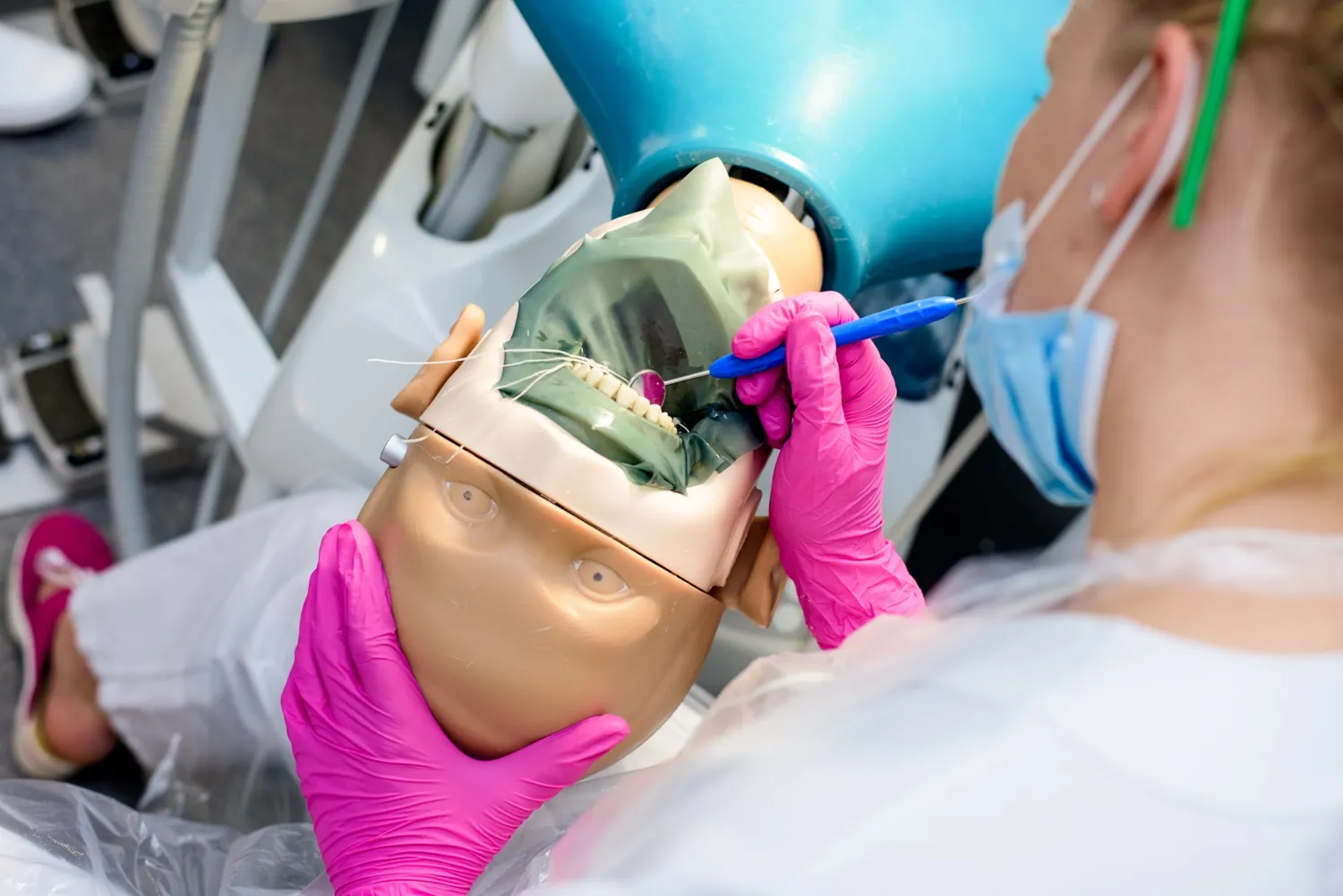Dental education at Karolinska Institutet
On this page, you will find the answers to some of the most frequently asked questions that we receive about studying dentistry as an international student at Karolinska Institutet. And yes, the dentistry programme at Karolinska Institutet is entirely taught in Swedish.

Undergraduate studies
Do you offer a dentistry programme in English at Karolinska Institutet?
No, the dentistry programme at Karolinska Institutet is entirely taught in Swedish. It is an integrated programme of 5 years, and one of the entry requirements is proficiency in Swedish equivalent to the level of the Swedish upper secondary school course Swedish 3.
Do you offer transfer from a different university?
Unfortunately, we do not offer any transfer from another university. The only way to be accepted to the dentistry programme is through the regular application through University Admissions in Sweden at Antagning.se (information in Swedish only).
Can I take Swedish language preparatory courses at Karolinska Institutet?
No, there are no preparatory Swedish language courses at Karolinska Institutet and we generally do not recommend anyone to study Swedish in order to meet the eligibility requirement for the dentistry programme. Applicants with Swedish language proficiency can take the TISUS test in order to show that they meet the requirement of the Swedish upper secondary school course Swedish 3.
How do I apply?
The application is made through University Admissions in Sweden at Antagning.se. The programme starts every autumn.
What are the entry requirements for the dentistry programme?
The general entry requirement is a completed upper secondary (high school) education (post-16), and proficiency in Swedish and English equivalent to the level of the Swedish upper secondary school courses Swedish 3 and English 6. The specific entry requirements for the dentistry programme are the Swedish upper secondary school courses Biology 2, Physics 2, Chemistry 2, Mathematics 4 (field specific entry requirements A13), or the equivalent courses.
How do I know if the courses I have completed are equivalent to the specific requirements?
Once you have submitted a complete application, your upper secondary school courses will be assessed by University Admissions. In the assessment of foreign upper secondary school courses and grades, University Admissions uses among others the following country handbooks. Karolinska Institutet is not involved in the eligibility assessments and we cannot guide you regarding the assessments.
How do you select students?
The selection to the dentistry programme is among others based on upper secondary school grades and the Swedish scholastic aptitude test Högskoleprovet. The test is arranged twice per year in Swedish only. Applicants can sign up for the test at hogskoleprov.nu. Admissions to the programme is extremely competitive and applicants need both top grades and a high score from the Swedish scholastic aptitude test to stand a chance in the competition for a place. There is also an alternative selection process (TAPIL) for the programme, based on written assignments and interviews.
How much are the tuition fees?
The total tuition fee for the dentistry programme (5 years) is SEK 1,900,000:- for non EU/EEA citizens. EU/EEA citizens are exempted from the tuition fees. There are no scholarships for the programme.
What options for exchange studies do you offer?
KI has student exchange agreements with several European universities. You can find more information about our exchange programmes or contact the international study adviser.
More questions?
For questions about entry requirements and documentation, you may contact University Admissions, or by phone 0771-550 720 or by chat.
Master Courses
Do you offer master courses for international students?
We only offer master courses in Swedish. We do, however, offer certain specialist training programmes that lead to a master's degree (see further below).
Complementary Programme for Dentists
What is the Complementary Programme for dentist with a dental degree from outside the EU/EES and Switzerland?
This is a programme for those with a dental degree who need to supplement their education to apply for a Swedish dental license. Read more about the admission process (only available in Swedish).
How much are the tuition fees?
The total tuition fee for the complimentary programme (1 year) is SEK 380,000:- for non EU/EEA citizens. EU/EEA citizens are exempted from the tuition fees. There are no scholarships for the programme.
Specialist Training Programme
For further information please visit
Karolinska Institutet Executive and professional education
Master's courses & Clinical Specialisation in Orthodontics 2026-2030
or send an e-mail to
Kristoffer Mörtsjö, Project Coordinator
Doctoral Education
Read about the rules and regulations regarding doctoral studies, and how to apply, here
and here
Postdoc
Are you accepting postdocs?
Please contact the head of division regarding the specific field of reasearch.
Miscellaneous
Do you offer summer courses?
No, unfortunately we do not.
Do you offer scholarships or financial aid?
No, unfortunately we do not.
